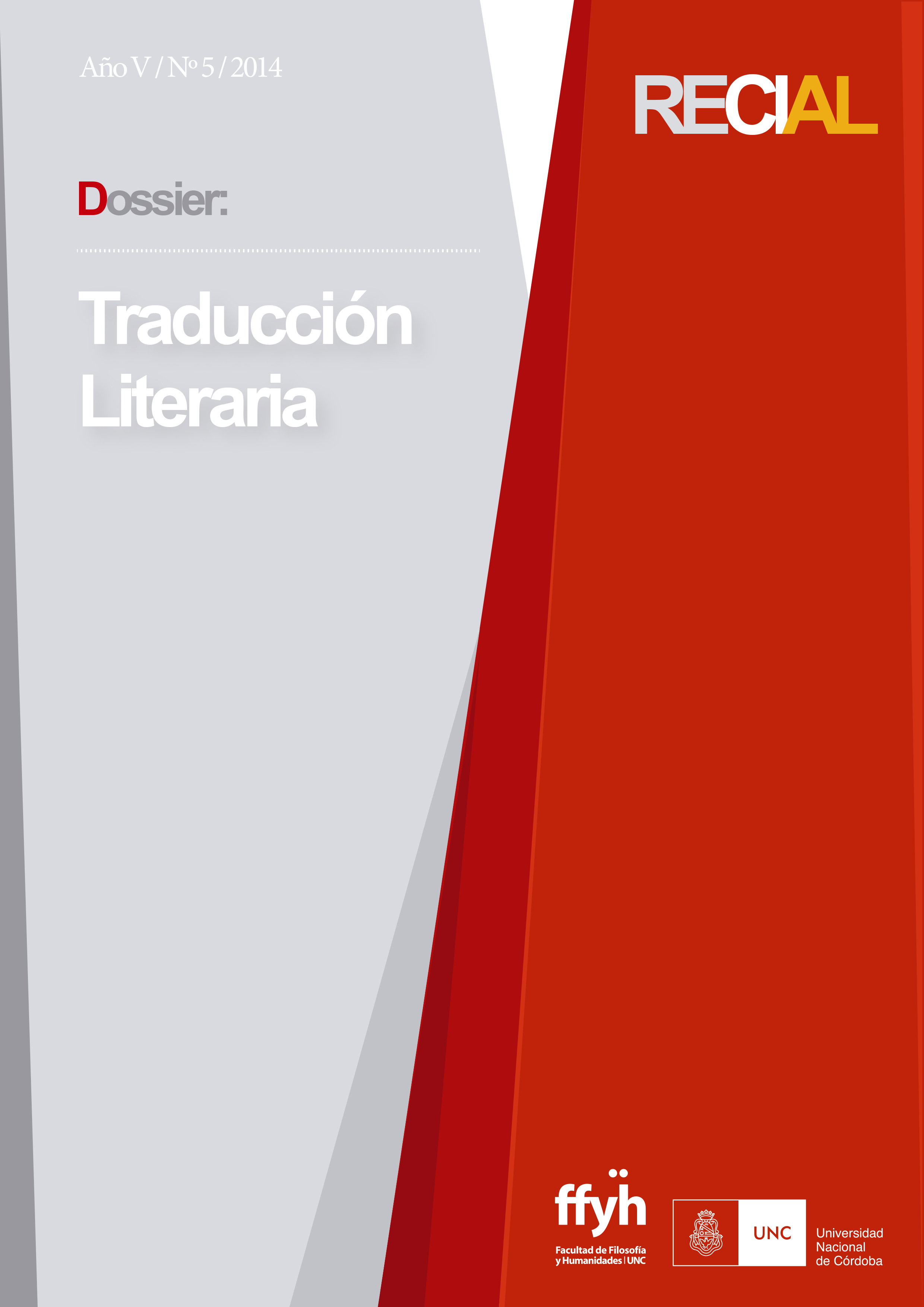La subversión del relato en La muerte de un hombrecito
DOI:
https://doi.org/10.53971/2718.658x.v5.n5-6.9589Keywords:
literary technique, crime, social-relations, fictionAbstract
In this paper we analyze the novel La muerte de un hombrecito, written by Juan Carlos Martelli, from the point of view of literary technique from the construction of the narrative voice. The text in question is structured on the basis of reflection on the working tool of the writer, language as means of literary production. The inability to build a monadic true, the unveiling of the fictional character of every story, the strategies underlying the literary hoax, are some of the writing problems that develops a narrator's as bourgeois as criminal. The chairman of a winery attracted to the underworld of crime will be the voice that structures the fiction upon ambiguity, putting at risk the reader's confidence in the omnipotence of narrative figure. This analysis that tries to think of literature as production or practice is linked to a reading of the detective genre from the concept of crime as social production branch, to deploy the meanings of literary works in terms of their "living social connections" (Benjamin, 2012) . Thus, the organizations that support the national legal and illegal businesses in the moment the dictatorship ends set the coordinates of a crime narration crossed by betrayal at both the history and construction of discourse.References
Amar Sánchez, Ana María (2000) Juegos de seducción y traición. Literatura y cultura de masas. Beatriz Viterbo Editora, Buenos Aires.
Benjamin, Walter (2012) “El autor como productor”. En Escritos políticos. Abada Editores, Madrid, pp. 89-111.
Chandler, Raymond (1970) El simple arte de matar. Editorial Tiempo Contemporáneo, Buenos Aires.
Cortázar, Julio (2013) Rayuela. Alfaguara, Buenos Aires.
Eagleton, Terry (2013) Marxismo y crítica literaria. Buenos Aires, Paidós.
Feuillet, Lucía (2011) Dinero y delito: la tradición materialista en la lectura/escritura pigliana del género policial . Córdoba, Alción.
Genette, Gérard (1989) Figuras III. Lumen, Barcelona.
Huebe, Leonardo “Juan Carlos Martelli el escritor que hizo literatura con el futuro” (2013 junio 20). [On line] Télam: Suplemento cultural, Buenos Aires. Disponible en: www.telam.com.ar (consultado el 29-08-14).
Jameson, Frederic (1974) “Chapter two. Versions of a Marxist Hermeneutic”. En Marxism and Form. Twentieth Century Dialectical Theories of Literature, Princeton, New Jersey, Princeton University Press, pp. 60-83.
Lafforgue, Jorge (2003) Cuentos policiales argentinos. Alfaguara, Buenos Aires.
Lejeune, Philippe (1975) El pacto autobiográfico y otros estudios. Megazul-Endymion, Madrid.
Ludmer, Josefina (2011) El cuerpo del delito. Un manual. Eterna Cadencia, Buenos Aires.
Martelli, Juan Carlos (1969) Getsemaní. Carlos Pérez Editor, Buenos Aires.
--- (1975) Gente del Sur. Editorial Sudamericana, Buenos Aires.
--- (1977) El cabeza. Ediciones Corregidor, Buenos Aires.
--- (1986) Los muros azules. Emecé, Argentina.
--- (1997) Melgarejo. Libros Perfil, Buenos Aires.
--- (1997) Los tigres de la memoria. Ediciones Corregidor, Buenos Aires.
--- (1992) La muerte de un hombrecito. Editorial Planeta, Buenos Aires.
--- (2000) French y Beruti. Los patoteros de la patria. Ediciones Atril, Buenos Aires.
Marx, Karl (1973) El capital. Crítica de la economía política. “Tomo primero”. Editorial Ciencias Sociales. Instituto Cubano del libro, La Habana.
--- (1974) Teorías sobre la plusvalía. Tomo I. Editorial Cartago, Buenos Aires.
Marx, Karl-Engels, Friederich (2005) La ideología alemana. Buenos Aires, Santiago Rueda Editores.
Piglia, Ricardo (2001) Crítica y ficción. Buenos Aires, Anagrama.
Voloshinov, Valentín N. (2009) El marxismo y la filosofía del lenguaje. Ediciones Godot, Buenos Aires.
Downloads
Published
Issue
Section
License
Aquellos/as autores/as que tengan publicaciones en esta revista, aceptan los términos siguientes:
- Los/as autores/as conservarán sus derechos de autor y garantizarán a la revista el derecho de primera publicación de su obra, el cuál estará simultáneamente sujeto a la Licencia de reconocimiento de Creative Commons que permite a terceros compartir la obra siempre que se indique su autor y su primera publicación esta revista.
- Los/as autores/as podrán adoptar otros acuerdos de licencia no exclusiva de distribución de la versión de la obra publicada (p. ej.: depositarla en un archivo telemático institucional o publicarla en un volumen monográfico) siempre que se indique la publicación inicial en esta revista.
- Se permite y recomienda a los/as autores/as difundir su obra a través de Internet (p. ej.: en archivos telemáticos institucionales o en su página web), luego de su publicación en la revista. (Véase El efecto del acceso abierto).





